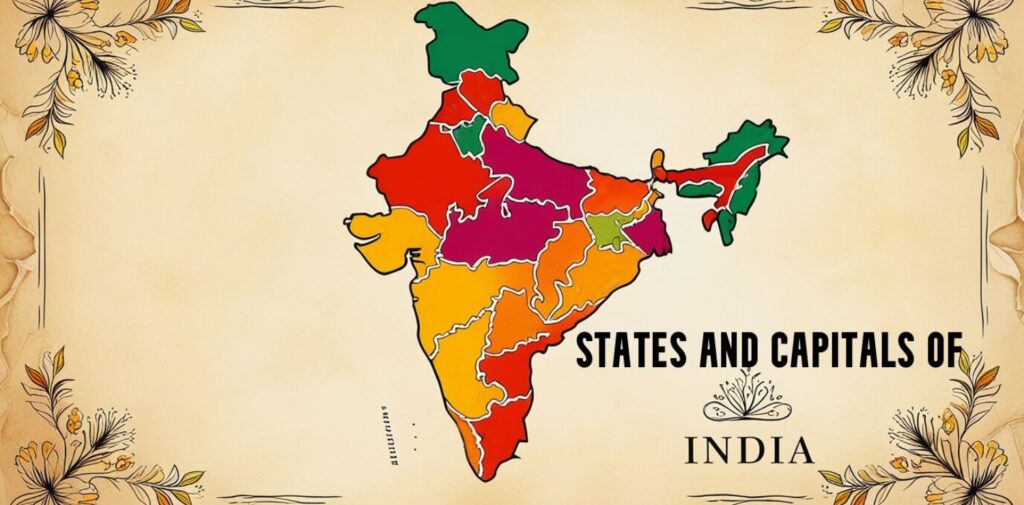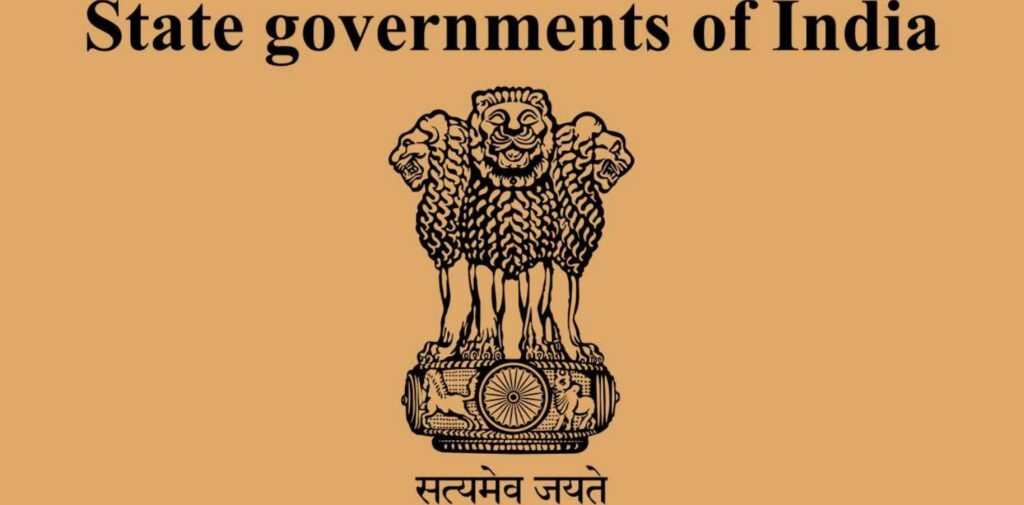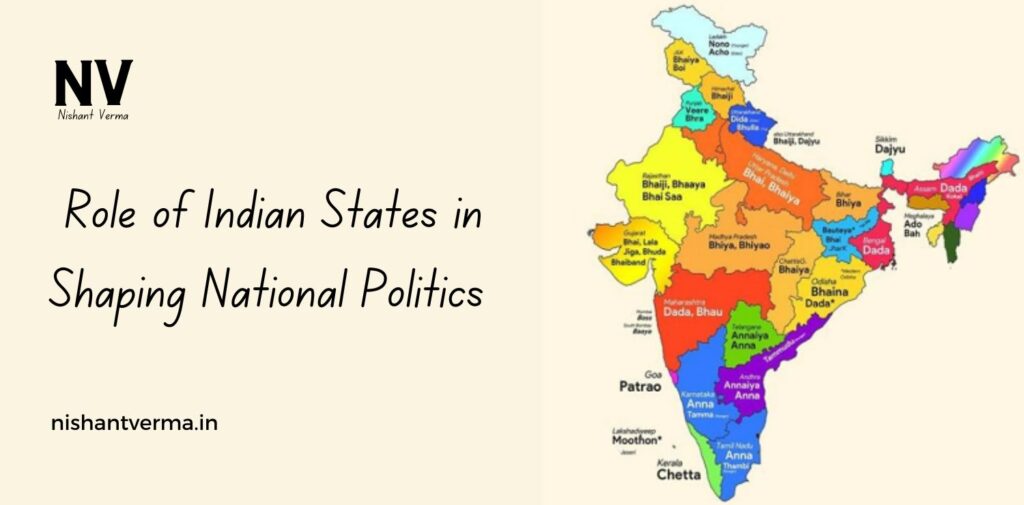India is a vast country made up of 28 states and 8 union territories. Each of these states has its own unique culture, language, traditions, and history. But even though these states are different, they play a huge role in shaping the politics of the entire country. Understanding the role of Indian states in national politics helps us see how the country works as a whole and how local issues affect the bigger picture. Let’s break it down in simple and easy-to-understand language.
What Are Indian States?
In India, the country is divided into states and union territories. Each state has its own government, which looks after local matters like education, health, roads, and agriculture. However, the central government in New Delhi is responsible for national issues like defense, foreign policy, and the economy.
The states in India are not just geographical divisions; they represent the diversity of the country. Every state has its own language, food, clothing, and festivals. Some states are rich in natural resources, while others are known for their industries or cultural heritage. The difference in these factors gives rise to various political parties and leaders in each state.

The Importance of States in National Politics
You may wonder why the states matter in national politics. After all, the central government runs the entire country. The reason is that India is a federal country. This means that both the central government and the state governments share the power to make decisions. While the central government looks after national matters, state governments handle local issues.
The states play a big role in national politics because they elect members to the Indian Parliament. India has two houses in Parliament: the Lok Sabha (House of the People) and the Rajya Sabha (Council of States). The Lok Sabha members are directly elected by the people from different states. The number of seats each state gets in the Lok Sabha depends on its population. So, a state with more people will have more representatives in Parliament.
When it comes to national elections, political parties need to win the support of people from various states. Winning elections in states is key to forming a government at the national level. For example, a political party may win most of the states, but if it fails to win the crucial states, it might not be able to form a national government.
States and Political Parties
Each state has its own political parties, and some of these parties have a big impact on national politics. For example, in Tamil Nadu, there are major political parties like the DMK (Dravida Munnetra Kazhagam) and the AIADMK (All India Anna Dravida Munnetra Kazhagam). These parties often play an important role in shaping the national political scene because of their strong influence in the state.
Similarly, in Uttar Pradesh, a large and politically significant state, parties like the BJP (Bharatiya Janata Party), SP (Samajwadi Party), and BSP (Bahujan Samaj Party) dominate the political landscape. The results of elections in such large states can change the direction of national politics. A party that wins in these states has a better chance of forming the government at the national level.
Some states, like West Bengal and Kerala, have long been dominated by left-wing parties. These parties believe in ideas like socialism and workers’ rights. Their influence on national politics has also been significant, as they have raised issues about economic policies, workers’ rights, and social equality.

The Role of Regional Parties
Regional parties are those that focus on the issues of a particular state or region. These parties often play a very important role in national politics because they represent local concerns that are not always addressed by national parties. For example, the Shiv Sena in Maharashtra or the Trinamool Congress in West Bengal focus primarily on the needs and interests of their states.
At times, national parties need the support of these regional parties to form a government. This happens when no single party wins enough seats in the Lok Sabha to have a majority. The regional parties, with their strong local presence, can help form alliances and make decisions that impact the entire country.
In some cases, regional parties even influence national policies. For example, the Telangana Rashtra Samithi (TRS), which focuses on the state of Telangana, has pushed for policies that benefit the state. Similarly, the Biju Janata Dal (BJD) in Odisha plays a role in shaping policies related to the state’s growth and development.
How States Influence National Policies
States also influence national politics through their decisions and actions. Every state has its own needs and challenges, and these are often reflected in national policies. For example, a state with a lot of farmers, like Punjab, might push for policies that help agriculture, such as subsidies for farmers or better prices for crops.
Similarly, states with a large number of industries, like Gujarat, might focus on policies that encourage business growth. These issues often make their way to the national level, where the central government has to consider the demands of various states when making decisions.
Examples of States Shaping National Politics
One example of states influencing national politics is the 1980s and 1990s period when regional parties began to play a bigger role. The BJP was not always as strong as it is today, and it relied on alliances with regional parties to form the government. This period saw the rise of the coalition government in India, where multiple parties, including those from different states, came together to govern.
In the 1990s, the United Front government was formed with the support of regional parties from states like Tamil Nadu, West Bengal, and Uttar Pradesh. This showed how the power of the states could shape the national political landscape, even when a single national party didn’t have enough seats to form a government on its own.
More recently, in 2014, the BJP formed a government at the national level, but even then, it needed support from regional parties like the Shiv Sena and the Akali Dal to secure a majority. This shows that states still play a crucial role in shaping the outcome of national elections.

State Governments and Local Issues
The state governments are also important in shaping national politics because they address local issues that can influence people’s opinions about national leaders. For example, if a state government does well in providing education, healthcare, or jobs, people in that state may feel more connected to the national government and the party in power.
On the other hand, if a state faces problems like poor infrastructure or corruption, it may reflect negatively on the national government. State elections can give people a chance to express their views on national leadership, which in turn affects national politics.
Conclusion: Role of Indian States and National Politics Work Together
In India, the states and the national government are like two sides of the same coin. While the central government manages national matters, the states handle local concerns. But both play an important role in shaping the overall political landscape of the country.
The power of the states in shaping national politics is clear. Whether it’s through the influence of regional parties or by highlighting local issues that impact the nation, the states have a significant say in how India is governed. As India continues to grow, the relationship between the states and central government will remain an important part of the political system.
For any country as diverse as India, it is essential that the voices of the people from every state are heard. The states ensure that their unique needs and challenges are addressed, while the national government works to unify the country and promote development for all. By working together, states and central government can create a stronger and more prosperous India.




